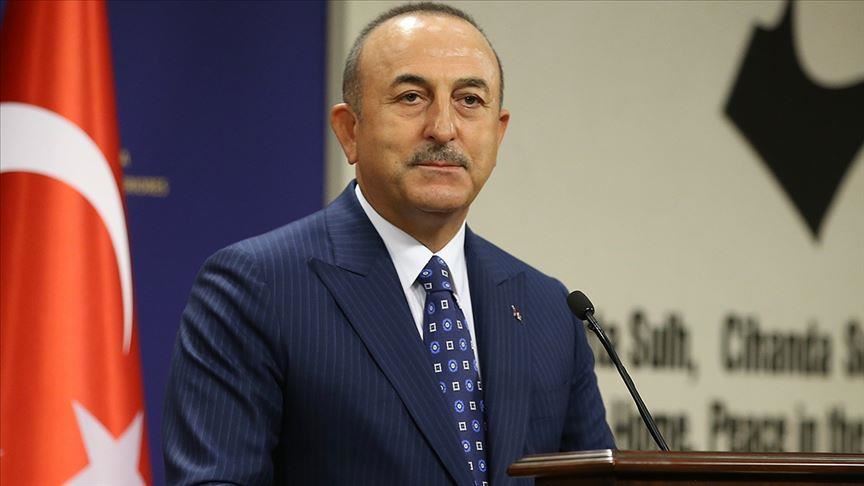
ANKARA
Turkey has prioritized relations with Central Asia and other Asian countries with its Asia Anew initiative, the country's foreign minister said on Thursday.
"With our 'Asia Anew' policy which we announced last year, we prioritized our relations with both our brotherly Central Asia and other regions of rising Asia," Mevlut Cavusoglu said during the opening ceremony of the International Hoca Ahmet Yesevi Turkish-Kazakh University's academic year via video link.
Cavusoglu underlined that enhancing relations with Central Asian countries was a "national policy."
Stressing that Turkey's trade volume with the region had reached approximately $8.5 billion in 2019, he said Turkish companies and contractors continued their activities in the region.
He added that the presence of Ahmet Yesevi University in the Turkish capital Ankara reflected the friendship between Turkey and Kazakhstan.
Turkey-Kazakhstan cooperation was built on strong foundations thanks to the sincere relations between Turkish President Recep Tayyip Erdogan and Kazakhstan's Founding President Nursultan Nazarbayev, he added.
Armenia-Azerbaijan conflict
In his speech, Cavusoglu reiterated Turkey's support for Azerbaijan in its conflict with Armenia over the occupied region of Upper Karabakh.
"As Turkey, we have always stood by Azerbaijan in its struggle for their rightful cause and we will continue to stand by them," he said.
"Unfortunately, some actors remain silent on the unjust treatment of Azerbaijan and put the cruel and the aggrieved in the same equation," he said, adding that these actors were ignoring UN Security Council resolutions and OCSE decisions.
Underscoring that Armenia is also attacking Azerbaijani territories that it had not already occupied, he said these actions constituted "war crimes."
The clashes began on Sept. 27 when Armenian forces targeted civilian Azerbaijani settlements and military positions in the region, leading to casualties.
Relations between the two former Soviet republics have been tense since 1991 when the Armenian military occupied Upper Karabakh.
The OSCE Minsk Group -- co-chaired by France, Russia, and the US -- was formed in 1992 to find a peaceful solution to the conflict, but to no avail. A cease-fire, however, was agreed to in 1994.
Some 20% of Azerbaijan's territory has remained under illegal Armenian occupation for some three decades.
The two states agreed to a humanitarian cease-fire taking effect on Saturday for the exchange of prisoners and retrieval of bodies in Upper Karabakh.
The truce came after a trilateral meeting in Moscow on Friday between the foreign ministers of Russia, Azerbaijan, and Armenia.
But, Armenian forces on Sunday launched a missile strike on Azerbaijan's second-largest city, Ganja -- despite it being outside the front line zone -- killing 10 civilians and injuring 35.
Many world powers, including Russia, France, and the US, have urged a new cease-fire. Turkey, meanwhile, has supported Baku's right to self-defense and demanded the withdrawal of Armenia's occupying forces.
Anadolu Agency website contains only a portion of the news stories offered to subscribers in the AA News Broadcasting System (HAS), and in summarized form. Please contact us for subscription options.







